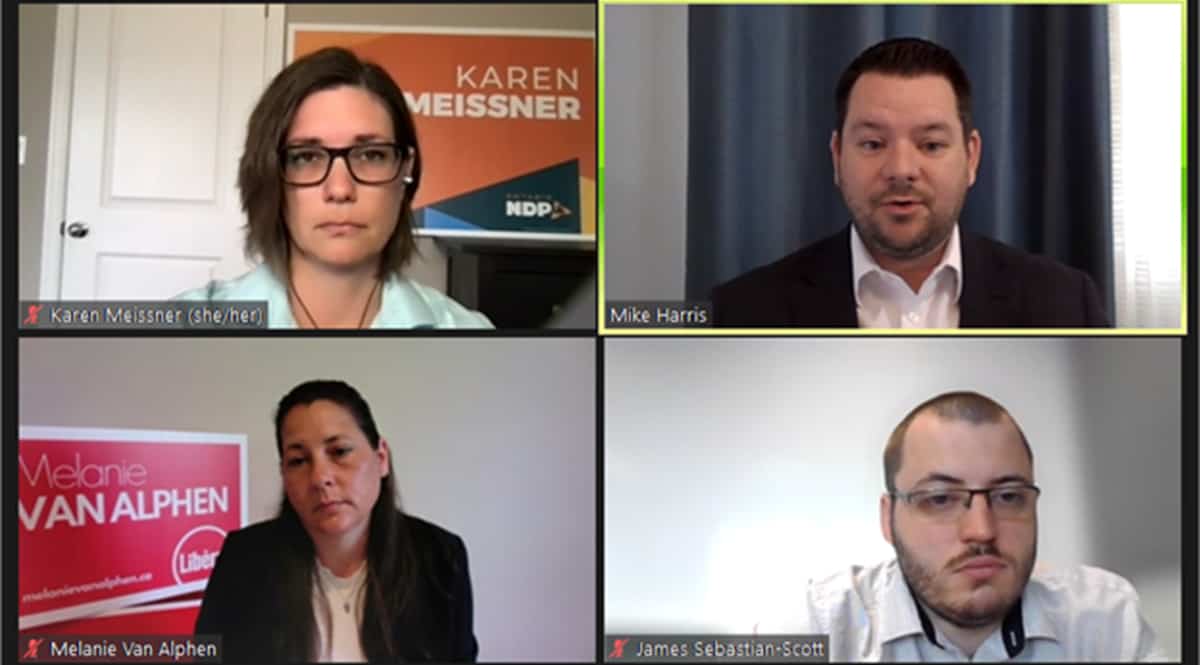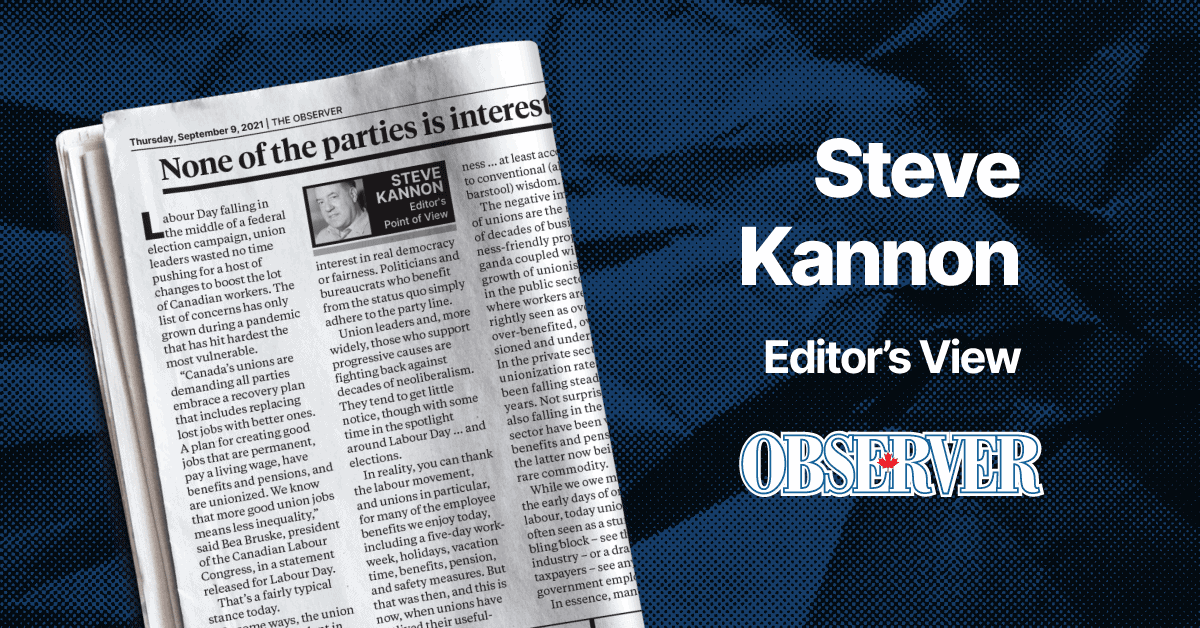Housing issues being top of mind for voters, the topic was naturally taken up by candidates vying to win the Kitchener-Conestoga seat in the June 2 provincial election.
The hopefuls took part last week in a forum held May 19 by the Greater Kitchener Waterloo Chamber of Commerce. Taking part were Karen Meissner, candidate for the New Democrat Party, Mike Harris the incumbent MPP for the Progressive Conservative party, and Melanie Van Alphen, the candidate for the Liberal Party.
“For the last 10 years in three provincial and federal elections, we have invited the leader or the candidates from the parties that have elected members in the legislature or the House of Commons to participate which has been the Conservatives, NDP, Liberals and the Green Party,” said Ian McLean, the president and CEO of the chamber.
The Green Party candidate Nasir Abdulle was absent from the forum.
The first topic discussed was the high cost of housing. Each candidate took a turn to answer how they will ensure the community remains livable.
Van Alphen spoke about the Liberals’ plan to start a new Ontario Home Building Corporation to fund and construct housing with an emphasis on affordable housing for first time home buyers. She said the party’s goal is to build 1.5 million new homes in the next 10 years. The party would also bring back rent control and end chronic homelessness with a promise to provide $100 million a year to municipalities to provide housing.
The Liberal housing plan includes banning non-resident ownership and putting a tax on empty homes, introducing use it or lose it taxes on land speculators holding land and driving up prices, bringing back rent control, introducing fines for negligent landlords, and other items.
The scope of the problem was addressed by Harris.
“It’s really something that resonates with just about anybody whether you’re a senior or a college student, or in the workforce. Lots of people want to make sure they have a stable place to call home,” said Harris of the PC’s plan for the housing crisis.
“In the last four years, we’re really focused on trying to increase more supply,” he said.
He spoke about the Progressive Conservatives’ plan to build 1.5 million new homes over the next 10 years, and that 100,000 new home starts have happened in the last year under the PC government.
He also spoke about how the PC party plans to build homes, not just intensified in the downtown core, but also outside the downtown core. He said he believes people should have a choice about where they want to live, and not everyone wants to live downtown.
He also spoke about the need for more tradespeople to build the homes, and a plan to increase these numbers.
“The NDP believe housing is a human right. We are in a crisis of affordability. Supply isn’t the only issue,” said Meissner in response.
She spoke about how the NDP is also proposing 1.5 million new homes over the next 10 years, adding the party plans to reduce barriers to intensification, end exclusionary zoning, address the missing middle, and introduce stronger measures on speculation by introducing a vacancy tax, and a use it or lose it tax on developers who are holding land and waiting to build houses to drive up the cost.
In government, the NDP would also introduce a requirement to charge new tenants what previous tenants paid. She said these measures would get at some of the root causes of the housing affordability crisis.
“All of these together will add some stability to the housing system,” she said.
Other topics discussed included strategies to minimize interruptions to business during any future pandemics and pandemic preparedness, the development of two-way, all- day GO Transit from the region to Toronto, addressing the low municipal transit ridership in the region, increasing the amount of business done between government and local and domestic businesses, health care and local hospital capacity, addressing talent shortage in the tech and trade industries among others.
While the event was mostly very civil, a few shots were fired.
When speaking about the infrastructure challenges to be addressed, Van Alphen spoke about the abuse of the use of ministerial zoning orders (MZO) by the current government. She said the Liberal party would plan to respect local government autonomy, scrap the MZOs and make development rules stricter.
“With the current government, it’s an abuse of power the amount of MZO’s that have happened,” she said.
Addressing pandemic preparedness, Harris spoke about how the previous Liberal government had let the province’s stockpile of personal protective equipment expire.
“Previous governments didn’t learn the lessons from SARS, and we were left to deal with it,” he said.
Meissner pointed out how both previous governments stood by as the housing crisis developed over many years. “What we are seeing is a lack of action, quite frankly,” she said. “While urgent, this is not a new problem. Housing prices have been going up for years.”
The all candidates’ forum was recorded and is available on the Greater KW Chamber of Commerce Youtube channel.
“The issues important to business are important to the community as well,” said McLean. “We want to have the community that we all want and deserve. Politics is a big part of that, and our leaders need to understand what is important to the business community, because business does help build community.”









